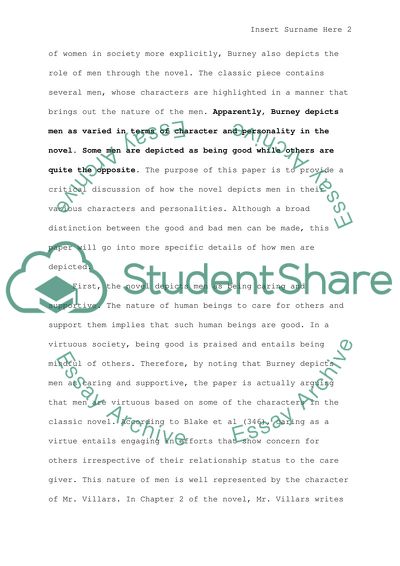Cite this document
(“How are men depicted in Frances Burney's Evelina Essay”, n.d.)
Retrieved from https://studentshare.org/literature/1665943-how-are-men-depicted-in-frances-burneys-evelina
Retrieved from https://studentshare.org/literature/1665943-how-are-men-depicted-in-frances-burneys-evelina
(How Are Men Depicted in Frances Burney'S Evelina Essay)
https://studentshare.org/literature/1665943-how-are-men-depicted-in-frances-burneys-evelina.
https://studentshare.org/literature/1665943-how-are-men-depicted-in-frances-burneys-evelina.
“How Are Men Depicted in Frances Burney'S Evelina Essay”, n.d. https://studentshare.org/literature/1665943-how-are-men-depicted-in-frances-burneys-evelina.


